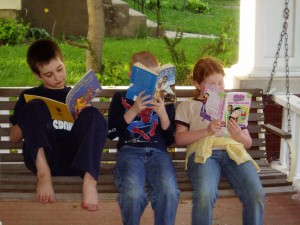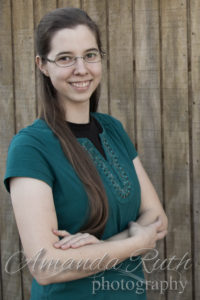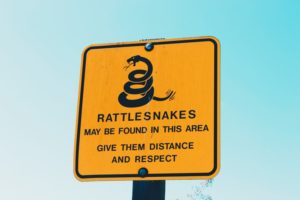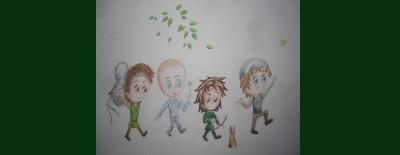NOTE: This post is something of a departure from my usual tone, as it will be more dry and academic than I usually write. This is because it’s a subject I have strong emotions about, and in an attempt to avoid breathing fire on my keyboard, I’ve squeezed a lot of my normal humor out of it.
But it’s still an important piece about a vital subject, so please take the time to read it and form your own opinions. I promise I only froth at the mouth a tiny bit.
What if we’ve been wrong about preschool this whole time?
Lots of people see “preschool” and they think “good.” We all want our kids to learn, right? We want them to have the best chance to succeed, right? And wouldn’t starting them in an institutional learning system as early as possible be the best way to do this?
No.
There’s also the question of whether this is the best way to honor God with our children. We want them to “achieve their full potential” and get good jobs, etc., but if we don’t make honoring God our chief focus (and make sure our kids know as much as we can teach them about Jesus) then we’re not living our Christian witness to the best of our ability.
But I’ll save that for a different post. For now, I’ll focus on the benefits preschool promises: academics, adult interaction, and affirmative action.
Let’s dive into this topic and try to figure out what we’re hoping to get out of preschool and whether it really delivers (or not)!
Academic Achievement
We all want Little Johnny to learn “reading, writing, and ‘rithmetic”. After all, “whatever you do, do it as though you were working to the Lord.” We want our kids to be able to support themselves, contribute to their communities, and enrich the lives of others…to say nothing of living full lives themselves and using the intellectual gifts God has given them.
It all starts with a “good education,” right?
And preschool is one of the best ways to give kids that, right?
No.
Where child development is concerned, there are very few absolutes…but the evidence is coming in stronger and stronger that preschool – especially an academically-focused preschool – does not give kids an “edge” to learning…and in fact might hurt them.
Academics over Learning
There’s been a lot of emphasis lately on pushing kids to achieve higher standards at earlier ages. The Atlantic tells us how kids who used to be expected to read by the end of first grade are now expected to read by the end of preschool. Maybe I’m doing the math wrong, but isn’t that a two-year advance?
A recent article in the newsletter from the Home School Legal Defense Association cites several researchers and testimonies from parents that children grow and develop at different ages. For instance, “children who had learned to read in kindergarten had no substantial advantage over those who learned to read in the 1st grade.”
Kids have different development rates, and that’s okay. Trying to force them into a one-size-fits-all system is a terrible way to let them flourish.
Parents testify to children as old as seven and eight years old who would not have done well in a traditional, sit-down-shut-up learning environment. Forcing these children to attend a rigorous preschool at four or five years old would not have helped them with “school preparedness”…it would have destroyed them. They needed a kinetic, hands-on learning environment tailored to their particular interests (an environment that their parents did provide for them).
The article also references increased diagnoses of Attention Deficit Hyper-activity Disorder (ADHD), or similar disorders on the spectrum, when kids who aren’t developmentally ready for school are expected to conform to the school environment. Do these kids really have a learning disability? Or are they just being asked to perform above where their brain and body have developed to?
Long-term consequences?
There’s more. According to Psychology Today, an intense focus on academic attainment (learning reading, writing, and math through worksheets and instruction) in preschool almost doubles a child’s chance of a felony record. (Presumably because the early pressure and behavioral expectations led to them acting out more in school, and elsewhere…although it’s impossible to finger causality in cases like this.)
Contrast this with “play-based” preschools where children are encouraged to play, interact with others, and explore on their own…sort of like what they would do in a natural home setting, perhaps in conjunction with play-dates.
EdLibertyWatch.org collects quotes from several different papers, including this study from the National Bureau of Economic Research: “…researchers concluded that preschool has a positive impact on reading and mathematics scores in the short term and a negative effect on behavior.”
Further, the National Conference of State Legislatures (NCSL) reports that a 2015 study found that “while children coming from ECE [early childhood education] programs earned higher achievement scores in kindergarten, these students did not test higher than their non-ECE attending peers by first grade, and tested below their peers by the third grade.”
Which is more important?
A slight, temporary rise in test scores in exchange for increased behavior issues, and even more ADHD diagnoses? Wait – should this even be a trade-off at all?
The homeschooling examples prove we can suit our education models to each child’s learning needs. Maybe we shouldn’t throw the “preschool” baby out with the bathwater…but it’s high time we stopped taking it for granted that the earlier we got our kids into preschool, the higher their college entrance scores would be.
The spiritual dimension: anti-Biblical curriculum
I know I said I’d leave this for later, but I came across a quote during my research that just stunned me:
What is gender identity? Why should it to be taught to three and four year old children? How [will it] close the achievement gap for poor and minority children?…
The National Association for the Education of Young Children (NAYEC), whose accreditation results in both more Minnesota state funding for childcare programs and gains a higher rating in the Parent Aware quality rating system, promotes these types of “gender anatomy and gender identity” exercises in its curriculum.
(Education Liberty Watch, quoting from the National Association for the Education of Young Children)
Notice that both state money and professional validation are tied to accepting the NAYEC’s view on this moral issue. And homosexuality is only one example – the culture has a whole hat-full of issues to introduce to your kids.
If you thought preschool was all about “school readiness” and getting a jump-start on learning the alphabet, these secular educators have one up on you. Kids at these ages are sponges, ready to accept whatever the “people in charge” teach them.
And if your child’s preschool is teaching transgender issues with anatomically correct dolls, wouldn’t you want to know about it – and be involved in conversations with your child?
To defuse the part-to-whole objections:
No, I’m not saying every teacher in every school is out to make your preschooler gay. But think about the trend of the culture, the political pressures of “this present age”…and remember who God will hold accountable for the children He entrusted to you.
Adult Interaction
 We want kids to grow up to be confident, competent, fully-functioning adults. Kids are great at learning by imitating (just wait until they start repeating that one word you wish you hadn’t said).
We want kids to grow up to be confident, competent, fully-functioning adults. Kids are great at learning by imitating (just wait until they start repeating that one word you wish you hadn’t said).
So the best way for them to learn how to be adults is…by putting them around adults.
More specifically, there’s plenty of research that what children at the preschool ages need is not math worksheets and vocabulary tests, but stable, lasting relationships. They will have plenty of time to grasp the more cerebral concepts if their emotional, psychological, and spiritual health is firmly grounded in relationships with trustworthy adults.
As Morningstar Education Network’s research adviser, Denise Kanter, says: “Young children need to be at home bonding with their mothers and fathers.”
[A]ccording to Martha E. Mock, assistant professor at the University of Rochester Warner School of Education[,] “Young children learn best through meaningful interaction with real materials and caring adults and their peers, not through the drilling of isolated skills,” … Kids from play-based programs usually catch up academically, while kids from academic backgrounds may never catch up socially. — Education.com
…the years from birth to age 5 are viewed as a critical period for developing the foundations for thinking, behaving, and emotional well-being. Child development experts indicate it is during these years that children develop linguistic, cognitive, social, emotional, and regulatory skills that predict their later functioning in many domains. —
Early Childhood Education: The Long-Term Benefits (PDF, first page)
But won’t my child miss out on socialization if he doesn’t go to preschool?
If you do the necessary socializing and relationship-building that parenthood involves, your child won’t suffer from missing out on preschool. Just because a good preschool is superior to plopping kids in front of the TV and ignoring them, though, doesn’t mean it should be our go-to method of child-rearing. (See below!)
The Atlantic article cited above explains that organic, child-driven learning (coached by engaged adults) is more interactive – and more educational – than the traditional “butt-in-seat” classroom model. This is where a teacher (or parent) uses a child’s natural curiosity to let them explore the world and ask questions (yes, millions of questions) and let them learn through the natural give-and-take of human conversation…instead of a list of facts they will be tested on later.
Focus on the Family insists that preschool should enhance the parents’ relationship with their child, not hinder it — nor simply be a way to get a “leg up” on those other kids! After all, trying to “keep up with the Joneses” isn’t very neighborly, is it?
The spiritual dimension
We should be especially concerned about this as Christians. Rod Dreher in his book The Benedict Option – which is all about cultivating a deliberate, passionate Christianity that informs every aspect of our daily lives – talks about how the model of “education” has changed over the past century. Instead of learning about the natural world and human history as a way to understand God better, and as a way to provide context for the divine order of the universe, modern schools are focused on retaining facts and applying them to work skills.
“Every educational model presupposes an anthropology: an idea of what a human being is. In general, the mainstream model is geared toward equipping students to succeed in the workforce, to provide a pleasant, secure life for themselves and their future families…and to fulfill their personal goals—whatever those goals might be.” (pg. 147)
Christian education, in contrast, should focus on “join[ing] ourselves to Christ and striv[ing] to live in harmony with the divine will” – from the time we wake up and have breakfast, to when we’re walking past the weird stranger on the street, to when we say our prayers at night.
As Christians, we need to teach our children that God is an important part of every single facet of our lives…that He is not somehow unrelated to physics, or social studies, or English spelling.
Tend your own personal orchid
Remember how every single child is unique, and develops at his or her own rate? Just because your child is seven years old and can’t spell doesn’t mean he (or you) is a failure. It means he needs someone caring and invested to give him the help he needs to learn in the best way for him (like getting up and moving during spelling tests, instead of glued to a desk with a pencil in his hand).
My mom used to have me write short stories with the words I missed on spelling tests…and now I can spell “snake” and “rabbit” just like any other well-adjusted twenty-something! (And, well, check out my “Books” tab to see what encouraging my story-telling got us!)
Kicking your orchids out of the hot-house make them shrivel…
Going back to that wealth of materials collected by EdLibertyWatch.org, the National Institutes of Child Health and Human Development (NICHD – 2007) say:
The more time a child spent in center-based care the more likely he or she was to be described by sixth grade teachers as one who “gets in many fights,” is “disobedient at school,” and “argues a lot.”
Children need a stable home life to help them develop emotionally and behaviorally – and that maturity will only improve their academic endeavors later on. In fact, to quote the rest of the excerpt on the NICHD study:
…NICHD tracked 1,364 children who had participated in early childhood education. Preschool participants were more likely to score higher on factors of aggression and disobedience as reported by their teachers. This finding was true even for children who attended high quality center-based care.
Remember: who are the two adults children will interact with for the greatest part of their growing-up? Their parents. Even if they go to institutional school and learn from different teachers every single year, they need a strong relationship with their parents to anchor them throughout their childhoods and beyond.
Children are more than a statistic…and when it comes to their lives, we need to be concerned about more than what the “experts” say, “what we’ve always done,” or what supposedly “works” to get the outcome we want.
This isn’t about outcomes. It’s about doing what God says. Right?
Teach a man to fish…
My parents have always affirmed that teaching their children how to study is one of the most important things they could do.
Children who develop emotional, psychological, and cognitive maturity will be self-motivated to study…and if they haven’t had their love of learning “snuffed out” by over-exposure, they will drive their own educational journey through grade school, high school, college, and beyond into adult life. (You knew we don’t stop learning once we get a job and don’t have a designated “teacher,” right?)
Assisting the Disadvantaged

I don’t have a picture of an impoverished child, so enjoy this cute dog instead.
A lot of voices in favor of preschool emphasize “closing the gap” between the “disadvantaged,” poor children and those with a better home life. A noble goal, and one in line with God’s own plan for us (check out James 1:27 and Mark 12:29-31).
The orphan (or in some places “fatherless”) is already late to the starting line, before the race even starts. That’s no fault of theirs, and God cares deeply about giving justice to the oppressed and helpless (just read, like, all of the Psalms).
However… While it’s good to feel for children who are growing up with only one parent, who suffer lack of opportunity due to poverty, etc. – none of that explains how the preschool system is superior to the natural, historic, and God-given system of two dedicated parents raising and educating their own biological children themselves.
And our concern for disadvantaged kids should in no way interfere with the raising of those kids who are blessed with a committed mom and dad.
But what about those poor kids who don’t have the same chances other children do?
Maybe they’re living in a single parent home, or their family doesn’t have the financial resources for books, etc. Maybe they really do have ADHD, autism, blindness, or some other physical barrier to learning the way other kids do. Do early childhood education programs help them succeed better – both now and later in life?
The Psychology Today article referenced above shared the results of a study among “sixty eight high-poverty children living in Ypsilanti, Michigan”. This study was largely to examine the effects on these children of a “Direct Instruction” preschool classroom (that focused on academic attainment) versus a “Traditional” preschool (which emphasized play). To quote:
[T]he experiment also included a home visit every two weeks, aimed at instructing parents in how to help their children. …
The initial results of this experiment were similar to those of other such studies. Those in the direct-instruction group showed early academic gains, which soon vanished. This study, however, also included follow-up research when the participants were 15 years old and again when they were 23 years old. At these ages there were no significant differences among the groups in academic achievement, but large, significant differences in social and emotional characteristics.
That’s right. “No significant differences in academic achievement“!
This is the same pattern we saw in the other studies. The writers suggest that the children in the so-called “play-based” preschools learned to “plan their own activities, to play with others, and to negotiate differences” – skills which served them not only in the later grades, but beyond into adulthood. (“Teach a man to fish…”)
The article writers also theorize that the home visits encouraged the children’s parents to reinforce these teaching styles. The Traditional “play-based” preschools encouraged the parents to let their children interact with the world creatively. The Direct Instruction preschools were focused on test scores and other “academic” markers of “personal achievement” – and this focus on “personal achievement” could have encouraged these children in the selfish attitudes that led to their generally more anti-social behavior.
Without being simple pragmatists, let’s look at the fruit.
The Bible tells us we can evaluate teachers by their fruit…or in other words, we can pick up hints about whether to listen to them by watching their actions (Matt. 7:15-20).
What is the outcome of preschool for disadvantaged children?
Obviously in some cases the outcome was…not too good. Early pressure to achieve, plus a focus on personal performance, encouraged anti-social behavior in some of these individuals. We might go even farther, and say that denying them a carefree childhood, and the opportunity to learn at their own pace, hampered their emotional and social growth.
So we see that even for disadvantaged children, the best outcome is the one that mimics a traditional, Biblical upbringing centered in the home of their biological parents.
But, post writer, what about all the terrible parents who will just stick their kids in front of the TV and who have no idea how to parent –
Statistically speaking, children with “bad” parents will have poor outcomes, no matter what school system you devise for them. The students discussed in Psychology Today had professionals visiting them at home to advise their parents how to support the teaching curriculum of their preschool – and the results still weren’t stellar.
The point is not that we should “give up” on these disadvantaged kids, but that we need to have our eyes firmly fixed on JESUS and to make sure we’re 1) trying to accomplish what He wants, and 2) going to Him for direction in how to do that.
Systemic Dysfunction
Preschools that drill facts and figures into little kids doesn’t help them. In fact, in the worst cases, it hurts their chances because they missed out on that crucial period of character development by worrying about head knowledge.
Children at these young ages should be sending down their roots and finding out what can be depended on…not raising their branches to test high on impersonal markers of “achievement.”
The preschools that did seem to succeed were the ones that allowed children to flourish at their own pace and ask questions naturally…in fact, the care centers that mimicked a nurturing home environment.
Further, as Christians, we understand that there are more important markers to success than grades or salaries. Give me ten children who respect their parents, treat those around them with kindness, and love their Creator over one “child” who makes six figures with his graduate degree and can’t keep his marriage together.
Institutional education is the cultural norm.
My grandparents have finally stopped asking when I’m going to get a college diploma (although they’re still not satisfied with my Associate’s Degree). The culture around us expects us to send our kids off on the bus as soon as they can walk, and our young adults off to college as soon as they’re old enough to join the army vote.
But is that the best way? Is that really how we’re going to accomplish our goals? Even if it was, the ends do not justify the means. (Otherwise, as my brother loves to shout, there is no justice, only means.)
God calls us to justice and righteousness. How can we strive for that in our everyday lives, and with our children?
Maybe in some other post, we’ll examine what God calls us to in our daily lives, and what that means for raising our kids. Until then, take a good, hard look at your own decisions.
I firmly believe the system of institutional education is broken – and that goes all the way down to preschool. Whether you agree with me, or think my mom dropped me on my head as a young’un, your kids are worth more than the default.
We need to get out of the rut of thinking “preschool” always equals “good.” Can it help? Sure – under certain circumstances and in certain situations.
But don’t do it because “everyone else is doing it.” Don’t do it because it’s expected of you, or because the grandparents want you to.
These are your kids we’re talking about – the kids God gave to you. Look at all the evidence, and decide if preschool will really help your kids to send down their roots, and thrive in God.
 Kimia Wood was raised by an aspiring author, so spinning words and weaving plots is in her blood.
Kimia Wood was raised by an aspiring author, so spinning words and weaving plots is in her blood.
She currently lives somewhere in the American midwest, bracing for the collapse of society by knitting, baking, gaming, writing, hobby-farming, and reading as much Twitter as possible before the web goes dark.
Subscribe to the mailing list for a FREE e-copy of her post-apocalyptic adventure novella Soldier! You’ll also receive periodic updates on her latest reading and writing projects.
















